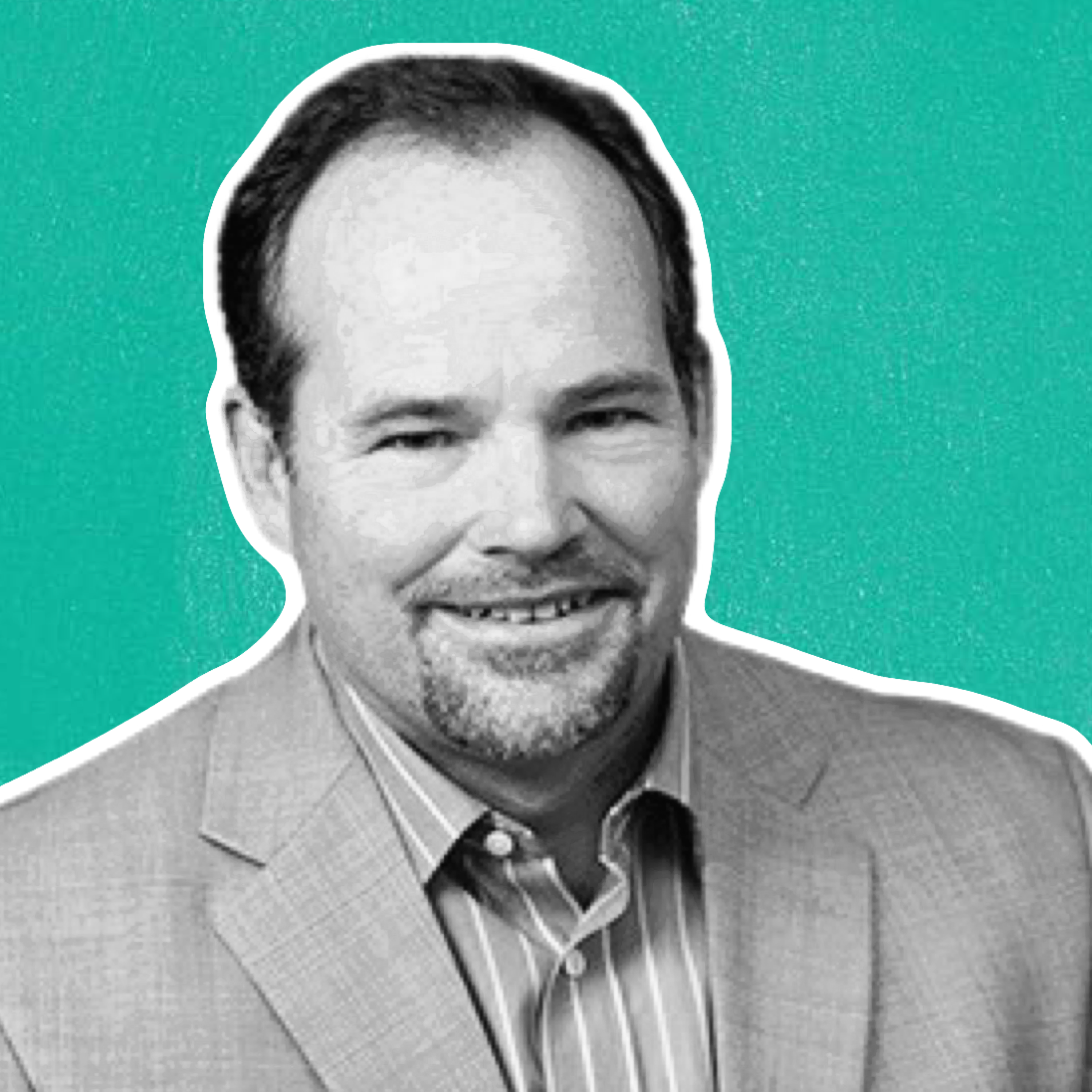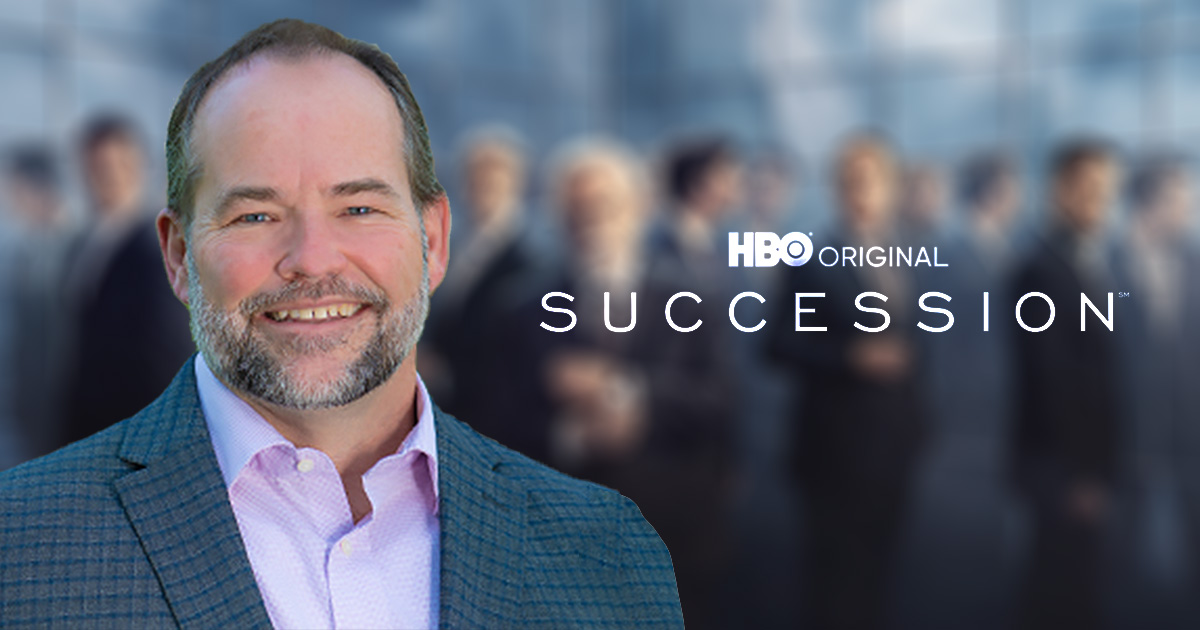
Anna Morcerf
Communications Manager
HBO’s Succession premieres new episodes each Sunday night, slated at the same time as other popular network shows like Euphoria and The White Lotus—when they are in season. Succession is a series centered on the Roy family, owners of Waystar RoyCo, a global media and entertainment conglomerate, complete with a news station, cruise line, amusement park, and much more. Aptly named, the series follows the company's succession amid the patriarch Logan Roy’s deteriorating health. Three of his four children fumble amongst one another in attempts to earn the title of CEO once their father steps down from the role.
While Succession is fictional, it pulls inspiration from the true dynamics and challenges one might experience when involved in a family business. We spoke with Kogod’s Department of Management chair and coauthor of Six Paths to Leadership: Lessons from Successful Executives, Politicians, Entrepreneurs, and More, Professor Mark Clark, about his take on the show from a business practitioner perspective.
Kogod: As part of your research for Six Paths to Leadership: Lessons from Successful Executives, Politicians, Entrepreneurs, and More, you had the opportunity to interact with and interview various high-level executives from family-run businesses for the “Legacy: The Family Path” chapter. This, I am sure, gave you a unique insight into the positives and pitfalls that come with family-run organizations. What is your high-level take on HBO’s Succession as a viewer, and how do they portray the intricate family dynamics?
Professor Mark Clark: “So obviously, when you look at anything that is a TV show, you’re going to have exaggerations, and you’re going to highlight this to get people watching and talking about the show, but anything can happen within a family—particularly within a family business. You see the dynamics of a family here and the high stakes not just for the company to succeed but for the family to remain a family. With Logan Roy’s death, we can see that the siblings try to comfort one another, but they’re not the best of friends due to the immediate need for a successor to take Logan’s space in the company. You also see from Cousin Greg that he tries to get in on the comforting, but he has ulterior motives—as they all do—they are all looking to satisfy different stakeholders, and everyone has a self-interest.
Right, so a life-altering event such as a death in the family is still centered around the family business. There isn’t much room for a respite.
Yes, and this is something I’ve seen often when speaking to leaders of family businesses. When you talk to folks about the holidays, I remember one saying that family events felt like a board meeting, and they are painful to get through. So instead of holiday gatherings being a time of joy and sharing, they were a time of jockeying for a position and a time of conflict.
I don’t think there is any way to get around a few spoilers, but in a recent episode, Logan Roy’s daughter, Shiv, feels pushed out of the business. Can you discuss gender equality and fair play among siblings in a family business setting?
Shiv was out of the family business for a while in the earlier seasons.
What Shiv did was really what we recommend—not just in our book but also in academic and practitioner literature—that second and third generations of family businesses should go outside the company and gain perspective and creditability and bring these experiences back to the family business.”

Mark Clark
Professor of Management, Kogod School of Business
The only sibling that did this was Shiv, but instead, her brothers count this against her. They saw that as making her more of an outsider to the company and granted themselves the position of co-COOs.
Right, and speaking of outsiders, we see a non-family member made interim CEO by Logan himself before his death. Logan's children don’t take the character Gerri seriously in this role. They go around her to their dad, and of course, we see other lewd and unwanted interactions between her and one of the Roy sons, which amplifies the lack of respect for her and her role. What are the implications when an “outsider” is hired into a family business, and what might someone want to be aware of before accepting such a role?
Different types of ownership and control affect these situations. What is happening with Succession is that everyone has a precarious minority stake in terms of the “royal” family. And in my eyes, this makes the situation with Gerri seem less realistic. Gerri is powerful on her own, even without the title of interim CEO, but you don’t see this from her much until a recent episode once Logan has passed away. When they are on the plane to meet Lukas Matsson for a potential merger opportunity, Gerri makes a powerful statement. She says that in bringing the two companies together, you can’t have two people in charge of everything. She points out that one side will have more sway culturally and from a structural standpoint. So, Gerri, in that scene, had much more of what I would have expected of realistic leadership, confidence, and influence.
Continuing the merger and acquisition theme, first, we see with the Pierce family what might occur when two family-run organizations try to get into business together, and presently in the season, they are working on the Matsson merger, as you mentioned. What might the dynamic be like when a non-family-run business merges with a family-run business? Are there increased challenges to overcome?
There are a couple of important things to keep in mind that are probably obvious, but this is about identity and ego, right? When you’re raised in the business, it is an integral part of your life. When their late father wanted to sell the business to Matsson entirely, his children thought it was a disaster, but they would still have billions of dollars in their bank accounts. The disaster is aligned with no longer being able to identify with the media empire. Then with the Pierce family potential merger, the Roy children have a moment of trying to start their own venture, “The Hundred,” and try to outbid their father. You notice immediately that not only are they trying to enrage their father, but they are offering a ridiculous premium. I have a hard time believing anyone could be that dumb. This was another unrealistic part of the show because usually, there would be several advisors in the room, and each of these advisors would be screaming bloody murder at the premium being offered to spite their father. You also wouldn’t be using cash; you would be dealing with bank-backed securities, stock exchanges…But it all goes back to the identity and ego reasons that they would make such a ridiculous offer.
Absolutely, and now going back to Matsson, what do you think of the volleying going on there?
Matsson is more of an entrepreneur, so he is trying to be a power player. He craves this old money identity that the Roy children all have. He is trying to buy it and show them he is just as good as them. They do it subtly in the series, but it speaks powerfully to me because it was something that we heard about when interviewing families.
Many families are sensitive to the idea of an “inherited” business because most say they don’t inherit much besides risks. It’s a personal risk, financial risk, public risk…Outsiders from the business don’t understand the pressure that is involved.”

Mark Clark
Professor of Management, Kogod School of Business
This is a disconnect with Matsson, who thinks he can buy the company's identity.
Thinking about risk, we see several scandals pop up over the seasons. One of the more prominent storylines is the scandal with the cruise ship documents. Is it more difficult for family-run businesses to overcome obstacles when, instead of choosing one scapegoat, the challenge affects the family name as a whole?
They made a big deal about looking for a sacrificial lamb, which has some realistic aspects to it. Still, you’re exactly right that because this is a family, relationships go beyond whatever happens in the workplace. The dynamics are such that you can’t just get rid of somebody. Everyone on an executive level will still maintain a level of ownership and influence over the business.
So do the pitfalls of a family business come with the territory, or is there a “right” way to proceed?
In addition to being part of my book's title, there are indeed many pathways to success. Some family businesses will professionalize management entirely. In other words, even though great-grandma or grandpa was good at their position, it doesn’t mean the whole family shares that passion. Or, as I mentioned with Shiv, it is beneficial to work outside the family company for some time. It increases competency and confidence. You can look at thousands of family businesses and find they each do something differently to make things work. And, of course, at some level, almost every business begins as a family business.
